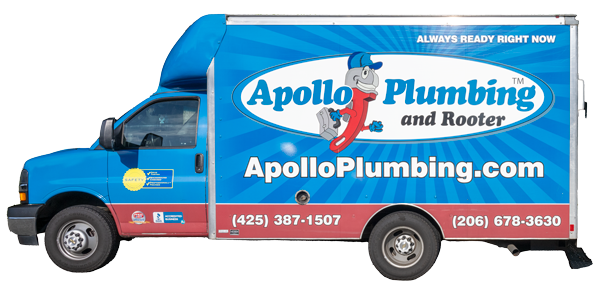When purchasing a new water heater, you’ll have two choices: a traditional unit or a tankless system. Both types act and work differently, so it’s best to learn about those differences before buying. The right choice for your home will likely depend on your energy conservation goals, installation space, and water usage. No matter which type you go with, count on us for skilled service and quality products.
Tankless Water Heaters: What Are They?
Tankless systems are exactly what they sound like—units that don’t use hot water storage tanks. Rather, they provide heated water on demand. Tankless water heaters use heat exchangers to move heat from a source, which increases the water’s temperature. The heat exchanger only comes on when the tap is turned on, and the water is then heated to a preset temperature. Today’s tankless systems are powered by natural gas, propane, or electricity.
Tankless water heaters offer hot water in just a few seconds and they eliminate the need to preheat water for future use. The average system up to five gallons of hot water per minute, and gas-powered systems provide a higher flow rate than electric units offer. Tankless water heaters are less vulnerable to overuse because, rather than storing a set amount of water, they heat water as it comes into the exchanger.
What Makes Traditional Water Heaters Different?
Conventional water heaters store water in holding tanks, preheating up to 50 gallons for use when a household member needs it. When the storage tank has been emptied, water flows in to continue the preheating cycle. The water won’t heat up right away, though; we’ve all experienced the delay when we’ve run out of hot water in the middle of a shower. Hot water shortages are one of the biggest reasons Washington homeowners switch to tankless water heaters.
A significant difference between conventional and tankless water heaters is their size. Traditional units are large, requiring a sizable amount of square footage for installation. In comparison, tankless water heaters are often installed on walls because of their compact size.
Is a Tankless Water Heater More Efficient Than a Traditional Unit?
Another big difference between these two types of water heaters is the energy they use. Tankless units are up to 24% more efficient than traditional models. They offer hot water within just a few seconds, eliminating the heat loss associated with storage. These water heaters are efficient because they only heat water when it is needed.
The Benefits of Tankless Units
Tankless water heaters may last twice as long as conventional units. A regular tank heater will hold out for about 10 years on average, while a tankless model may last 20 years with adequate maintenance. With tankless systems, Washington homeowners get more installation versatility and flexibility.
These on-demand units are small enough to fit almost anywhere—even on an outside wall! The only way to get hot water on demand is to install a tankless water heater. As long as the unit works within its stated capacity, you’ll enjoy an unlimited supply of hot water for cooking, cleaning, laundry, and other uses.
Tankless water heaters allow local homeowners to step up their water conservation efforts. Because the heated water is used right away and there’s no need to hold it for later use, you won’t waste as much water and energy. On some models, remote controls can be programmed with multiple settings.
Disadvantages of Tankless Water Heaters
Tankless units vary by size and price, and in most instances, they cost more upfront than conventional water heaters. If your Washington home already has a traditional water heater, retrofitting is necessary before a tankless model can be installed.
The installation process is complicated, which means it costs more. Many homes need new gas lines, ventilation, or electrical circuits. Tankless models sometimes struggle to yield enough hot water when multiple family members are using it simultaneously.
Traditional Water Heaters: The Pros
The upfront cost of traditional water heater installation is significantly less than that of a tankless model. In homes already equipped with conventional units, no retrofitting is necessary because the setup is already in place. Therefore, the installation process is less complex and not as costly.
With conventional units, hot water can be accessed through multiple fixtures at once without any decrease in warmth. Tankless water heaters can only heat so much water at one time, and when several people need it at once, shortages may occur.
Conventional Water Heater Cons
Traditional units store water and keep it at a predetermined temperature, no matter when it is needed. Your energy and water bills may be higher with such a unit. These water heaters are much bigger than their tankless counterparts, which makes it more difficult to find a good place for installation. Tank-style water heaters can’t be installed outside.
Because conventional heaters store water, it will eventually run out, and you’ll have to wait for the tank to fill and the water to reheat. For homes needing more hot water, larger tanks are available. Traditional units may last ten years with adequate maintenance, which is approximately half the lifespan of a tankless water heater. If you’re looking for a lasting option, a conventional water heater may not be the best choice.
Count on Us for Reliable, Efficient, and Professional Water Heater Installation, Repair, and Maintenance Services
If it’s finally time to install a new water heater in your Washington home, call us for high-quality equipment and outstanding customer service. When you’re finding it hard to choose between a tankless unit or a traditional water heater, our licensed, qualified technicians can explain your options and help you make the right choice based on your family’s and home’s needs.
Since 2005, Apollo Plumbing has provided the personal attention Washington homeowners deserve. Our technicians will treat your home like their own, and you can count on us for prompt, professional, and affordable service. Request more information online or call today to schedule water heater replacement.

